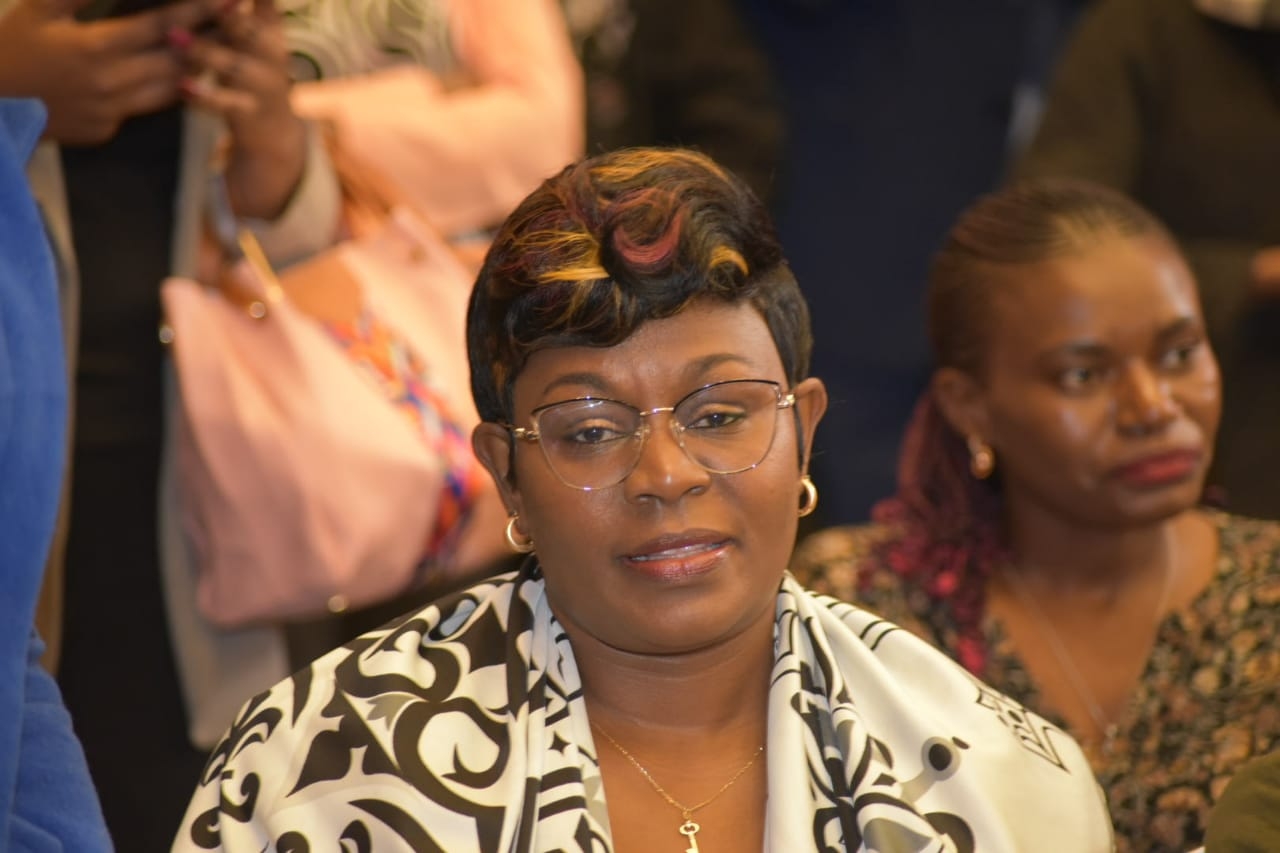Mary Nyaruai left her lucrative career as a debt collector earlier this year to pursue her passion for menstrual health activism.
The 32-year-old sociology graduate from the University of Nairobi took a leap of faith to play her part in working to better the menstrual health lives of women.
She founded her company Nyungu Afrika in 2019 to create sustainable menstrual hygiene products for women.
She named the company Nyungu because it means pot in Kiswahili and loosely translates to womb.
Nyaruai says she was pushed into her calling by forces greater than herself to help Kenyan women and girls.
At the beginning of her activism, she would visit women and girls in different areas to hear about their period experiences, and their stories devastated her.
"I did pads drives and donations to schools. I visited homeless women, who told me they were using cardboard boxes and mattresses as pads, and I felt the pain. I wanted to do something about this period poverty gap," she said.
Looking back, Nyaruai said there were so many experiences that made her start Nyungu Afrika.
"I used to post about feminine hygiene products on my personal Instagram page, and it developed into something bigger," she said.
Women would interact with her posts in earnest, sharing their experiences with menstrual hygiene products that were harmful to them.
"I remember in 2019, there was a hashtag on social media where women were complaining about irritation and itching after using a particular brand of sanitary towels. And funny enough, I used to experience the same, so I thought it was normal," she said.
Nyaruai says most disposable period products made for women globally are made from a lot of toxic chemicals, such as chlorine bleaches and single-use plastics.
These products, Nyaruai said, are not only bad for women's reproductive health because they may lead to cancers, infertility and recurrent yeast infections, but also they are bad for the environment.
This coupled with her exposure to dire period poverty among girls in the news that led them to exchange sex for pads, drove Nyaruai to be more intentional about her work rather than just being vocal.
The final straw for her was when she heard of the death of 14-year-old, Jackeline Chepngeno, who killed herself after her teacher period-shamed her for staining her uniform.
"I was very mad. I wondered why a teacher would shame a student for something that happens to women naturally," she said.
I was so shocked to see the difference in quality between our products and [American] products of the same brand. Africa gets the substandard products, with the many toxins in them
MEDICAL RACISM
After that, she did a lot of research on how she could bridge the period poverty gap in Kenya.
"When I started digging into the research, I found out there is a lot of disparity between products of the same brand here in Africa compared to those found abroad," she said.
By that time, Nyaruai had built a name in the menstrual hygiene activism industry, so when she approached a brand from the United States, they agreed to send her a small sample of their products.
"I was so shocked to see the difference in quality between our products and their products of the same brand. It was like what I would call medical racism because Africa gets the substandard products, with the many toxins in them," she said.
Nyaruai decided that if developed countries can make products that work for their women, then she, too, could make products that work for Kenyan women.
She went to the Kenya Industrial Research and Development Institute (Kirdi) after two years of research to seek a PhD in material scientist engineering to help her look for the best products to use.
"The raw material used to make pads is cellulose, which mostly comes from trees. I thought to myself that if it's cellulose we need, then we should start to profile other plants for it," she said.
She started with sisal, which grew around her neighbourhood, but it did not work. She also tried aloe vera, papyrus reeds and another plant that caused her legs to swell terribly.
Despite all these, she persisted through the encouragement of her family and friends, who also felt that she was on the precipice of something great.
Then an idea came to her to use food fibre products instead.
"Growing up in Thika, I remember seeing so many pineapples and pineapple processing factories. It just occurred to me to use pineapple fibre one day," she said.
She washed the fibres and found that they were very soft.
"I was so emotional and I took the fibres to Kirdi and told the professor I had partnered with that, 'I think I found the answer'," she said.
The professor called her a few days later and told her he had had a breakthrough and made a sanitary pad that combines pineapple fibres with corn leaves.
"He told me to go and write a patent for it and I didn't even know how to do that. I had to also research about that and that is how Nyungu was formed," she recalled happily.
How comes sanitary pads are not free to the public like condoms are, yet sex is optional and menstruation is not?
FIGHTING CLIMATE CHANGE
Nyaruai said during this year's Conference of Parties (COP26), only 16 per cent of those present to discuss the climate crisis were women.
"This was very sad because feminine hygiene companies are some of the biggest polluters right now, and the actual menstruaters are not included at the table to talk about what products they actually want to use," she said.
Nyaruai advises countries trying to fight the crisis to consider making sustainable period products accessible to all.
"How comes sanitary pads are not free to the public like condoms are, yet sex is optional and menstruation is not?" she asked.
She also called upon other menstrual health activists to lobby for manufacturers of these products to be 90 per cent women because they themselves know the kind of products they want to use.
"We should also lobby for Kenya to micro-franchise how pads are made because at the moment, we only have big corporates making the pads, for example in Industrial Area," she said.
"The process of assembling a pad can be taught even in secondary schools. Use menstrual health activists to teach students how to go about it."
Nyaruai hopes Nyungu will begin production soon as they are still waiting for donors and space to start production.
"We also hope to start producing menstrual health products for all age groups, including teens, young women and women who are in their menopausal stage," she said.
She concluded by telling women to take full control of their bodies' autonomy and not let people make decisions about their own bodies on their behalf.
"Know the difference between a normal period and an abnormal one," she said.
"With issues such as endometriosis and other reproductive health illnesses still being researched by scientists, it is important that women also do their own research and be in the know in order to be in a position to help solve such problems affecting them."
SUSTAINABLE PERIODS
On top of being a menstrual health advocate, Nyaruai also describes herself as an environmental activist.
Nyungu Afrika, she said, is about the sustainability of the planet as well and making products that are biodegradable.
"Since cellulose is gotten from trees mostly, many of them would need to be cut down, and processing them also takes a toll on the environment," she said.
According to the United Nations Environmental Program (Unep), 15 million tonnes of greenhouse gases a year are emitted just from the production of sanitary pads.
"This is excluding the distribution of the pads, where trucks are used, emitting carbon dioxide, and then the waste that disposable pads later become, containing the chemicals and plastics that take years to decompose," she said.
Nyaruai said according to Unep, a woman is likely to use more than 11,000 disposable pads in her entire lifetime. These usually end up in the oceans or landfills somewhere, blocking sewers or emitting toxins into the atmosphere, which is hazardous.
"We cannot talk about sustainable futures if we cannot talk about sustainable periods. Therefore, we need to have a call to action to make manufacturers make reuseable or biodegradable sanitary products," she said.
Edited by T Jalio












